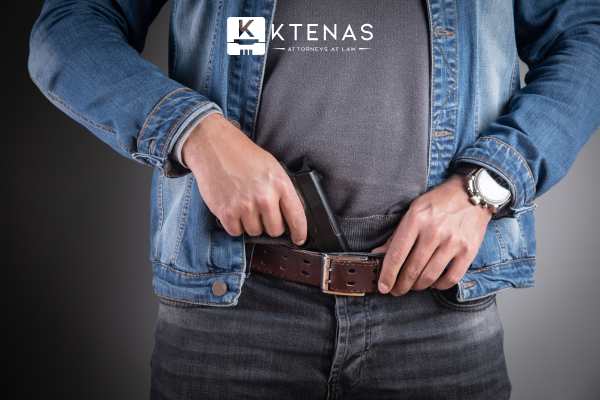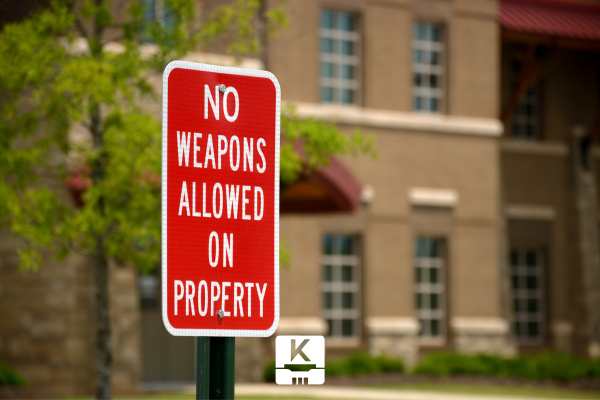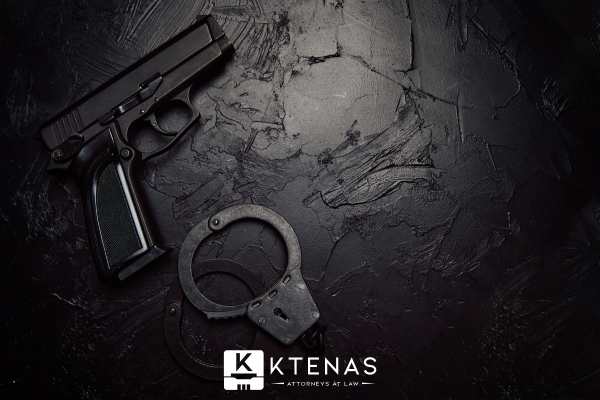Can You Legally Record Police Officers?
11/09/2025
Chicago’s strict gun control laws are designed to reduce crime and enhance public safety, but they also create a complex legal landscape that can easily ensnare residents and visitors alike. From unlawful possession and carrying without a permit to the illegal sale or trafficking of firearms, the city enforces a range of statutes intended to control the use and distribution of guns.
For gun owners, or anyone involved with firearms, familiarity with these regulations is essential to navigate the complexities of legal gun ownership and use in Chicago. If you’re facing firearm charges, or if you’re unsure about the legality of your firearm-related activities, reaching out to an experienced Chicago gun attorney should be your first step.
Call our law firm at (312) 756-8652 to discuss your situation with a knowledgeable attorney. Our team is adept at handling various types of gun charges and can provide the guidance and defense you need to protect your rights and achieve the best possible outcome.
Unlawful gun possession charges are among the most serious offenses related to firearms, attracting stringent penalties and significant legal scrutiny. Whether you are concerned about your rights or are seeking guidance on how to navigate potential legal issues, we aim to provide valuable information to help you understand and responsibly manage your firearm ownership.
In Illinois, possessing a firearm without a valid Firearm Owners Identification (FOID) card is a violation of state law and carries significant penalties. The FOID card system is designed to ensure that individuals who own, possess, or purchase firearms and ammunition are legally able to do so.
If caught without a FOID card for the first time, individuals can be charged with a Class A misdemeanor. This is the most serious class of misdemeanor and can result in penalties including up to one year in jail, fines of up to $2,500, or both.

If an individual has a previous conviction and is again found in possession of a firearm without a valid FOID card, the charge can be elevated to a Class 4 felony. This can result in harsher penalties, including 1 to 3 years in state prison, fines, and probation.
Possession without a FOID card can also be escalated to a Class 4 felony if the person possesses the firearm in a place where they know firearms are prohibited, or if other aggravating factors are present.
Given the complexity of these laws and the severe consequences of a conviction, it is crucial for anyone facing charges to seek legal assistance.
In Illinois, possession of a firearm by a convicted felon is a severe offense and is taken very seriously due to the potential threat to public safety. Illinois law, along with federal statutes, imposes strict penalties on convicted felons who are found in possession of firearms. Here’s a detailed overview of the penalties that a convicted felon may face if caught with a firearm in Illinois:
Under Illinois law (720 ILCS 5/24-1.1), it is a Class 3 felony for a person convicted of a felony to possess any firearm. The potential penalties for a Class 3 felony include:
The penalties can be more severe depending on the felon’s criminal history, the type of felony, and other circumstances such as the possession of firearms by individuals convicted of gang-related felonies, which can lead to longer sentences.
Under federal law (18 U.S.C. § 922(g)), it is illegal for anyone who has been convicted of a crime punishable by imprisonment for a term exceeding one year to possess a firearm or ammunition. The penalties for a federal violation can include:
Given the complexity of firearm laws and the harsh penalties involved, it is critical for anyone charged with such an offense to seek experienced legal representation. A knowledgeable criminal defense attorney can help navigate the legal system, challenge the prosecution’s case, and work to achieve the best possible outcome based on the facts of the case.
In Illinois, possessing a firearm in a prohibited place is a serious offense with strict penalties, governed by both state and federal laws. Illinois has designated specific locations where firearms are not allowed. These areas typically include schools, government buildings, public parks, and other sensitive locations.
Under the Illinois Concealed Carry Act, carrying a firearm in designated prohibited areas is usually a Class B misdemeanor for the first offense, which can result in up to 180 days in jail and fines of up to $1,500.
A second or subsequent offense is elevated to a Class A misdemeanor, which can lead to up to one year in jail and fines of up to $2,500.
Specific locations such as schools, courthouses, or public transit facilities have enhanced penalties. For instance, carrying a firearm into any of these locations can lead to a Class 4 felony, punishable by 1 to 3 years in state prison.

Certain violations can also trigger federal charges, especially when the offense involves crossing state lines or occurs in federal facilities.
An experienced attorney can provide essential guidance, potentially challenging the charges based on the specifics of the case, such as questioning the legality of the search and seizure that led to the discovery of the firearm or arguing about inadequate signage at the location.
If you are unsure about the legality of carrying your firearm in certain places or if you find yourself facing charges, contacting a knowledgeable Illinois firearm attorney can help protect your rights and navigate the complex legal landscape effectively.
Gun ownership in the United States is governed by a complex framework of federal, state, and local laws designed to ensure public safety while respecting constitutional rights. However, navigating these regulations can be challenging, and violations can occur even among well-intentioned gun owners. Whether you’re a seasoned gun owner or new to firearms, understanding these potential pitfalls is crucial to maintaining both your legal standing and your safety.
In Illinois, the illegal transfer or sale of firearms is heavily penalized under both state and federal laws. These laws are intended to prevent firearms from reaching individuals who are prohibited from owning them.
If you find yourself or your business facing such charges, contact a defense lawyer promptly to ensure your rights are protected and to seek the best possible outcome in your case.
In Illinois, penalties for possession of an unregistered firearm can be severe, especially in cities with strict gun control ordinances like Chicago.
Possessing firearms that are regulated by the NFA (such as short-barreled rifles, machine guns, or silencers) without proper registration and documentation can lead to severe federal penalties, including up to 10 years in federal prison and significant fines.
In Chicago, the local ordinances regarding firearm possession are even more restrictive. Possession of certain semi-automatic firearms, which the city classifies as “assault weapons,” or high-capacity magazines may result in additional municipal penalties, including fines and possible jail time.
Given the complexity of firearm laws and the serious nature of the penalties involved, it is crucial for anyone facing charges related to unregistered firearms to seek competent legal representation. An experienced attorney can provide the necessary legal guidance, help navigate the judicial process, and work to achieve the best possible outcome in such cases.
In Illinois, possessing a firearm that has had its serial number altered, removed, or defaced is a serious criminal offense. This type of violation is treated with particular severity because altering or defacing a firearm’s serial number is often associated with attempts to conceal the weapon’s origin or impede its traceability in criminal activities.
Under Illinois law (720 ILCS 5/24-5), it is a Class 3 felony to knowingly possess any firearm upon which any importer’s or manufacturer’s serial number has been changed, altered, removed, or obliterated.

A Class 3 felony in Illinois for this type of offense typically carries a potential prison sentence of 2 to 5 years. Additionally, offenders can face fines of up to $25,000. Probation may be available in some cases, but this depends on the specific circumstances of the case, the defendant’s criminal history, and the judge’s discretion.
Facing charges for illegal usage of a firearm can have profound consequences, encompassing a broad spectrum of actions deemed unlawful under state and federal laws. Whether you are a gun owner seeking to ensure compliance with the law or someone facing legal challenges, this section will provide you with essential insights and advice on navigating the complexities of illegal firearm usage charges.
In Illinois, the illegal discharge of a firearm, often referred to as “reckless discharge,” is considered a serious criminal offense. Here’s an overview of the penalties and legal implications for the illegal discharge of a firearm in Illinois:
Illinois law (720 ILCS 5/24-1.5) specifically addresses reckless discharge of a firearm as a Class 4 felony. This law is applicable when a person recklessly discharges a firearm in a way that endangers the bodily safety of an individual.
Conviction for a Class 4 felony in Illinois can result in 1 to 3 years in state prison. Additionally, there can be fines of up to $25,000. Probation is a possibility for those found guilty of reckless discharge, depending on the circumstances and the individual’s prior criminal history. However, the seriousness of the offense, especially if it endangered lives, might influence the court’s decision on whether to impose a custodial sentence.
Brandishing a weapon, particularly a firearm, is a serious offense that falls under the broader legal category of “aggravated assault” or “aggravated unlawful use of a weapon,” depending on the specifics of the case. Here’s an overview of the legal consequences and penalties for brandishing a weapon in Illinois:
Related Content: How to Beat a Gun Charge in Illinois
Under Illinois law (720 ILCS 5/12-2), aggravated assault occurs when a person uses a deadly weapon (including a firearm) without lawful authority while committing an assault and in a manner that could reasonably cause fear of imminent bodily harm.
Understanding the most common types of gun charges in Chicago is crucial for anyone residing in or visiting the area, given the city’s strict gun control laws. From unlawful possession and carrying without a permit to the illegal sale or transfer of firearms, the consequences of these charges can be severe, impacting your freedom, personal record, and future rights.
If you or someone you know is facing gun charges in Chicago, it’s important to seek legal counsel immediately. Contact our law firm to connect with experienced defense attorneys. We can provide you with the necessary guidance and aggressive representation to challenge the charges against you and seek a favorable outcome. Don’t let a misunderstanding or a mistake jeopardize your future. Reach out to our defense attorneys in Chicago today for a comprehensive evaluation of your case and to discuss your legal options.

